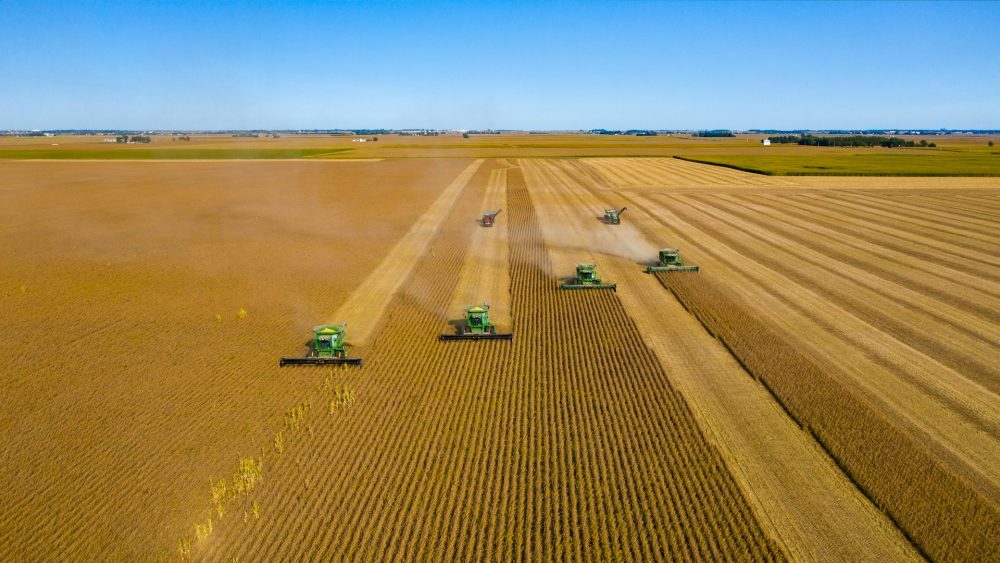Africa
EESC recommendations for the rural markets in Morocco
Of the 889 weekly markets located in rural areas, 822 are open and distributed among 792 rural municipalities or more than 61% of them. The territorial coverage of markets also indicates that 490 rural communes do not have a market. Today, updating data on weekly markets remains crucial. Indeed, 95% of revenues come from rental income, and the actual turnover of each market is often unknown.

The Economic, Social, and Environmental Council calls for the strong involvement of the regions through a new framework of partnership with the State. The management of weekly rural markets should be entrusted to local development companies in Morocco.
Following a self-referral relating to the “policy of upgrading and development of weekly markets in the rural world”, the Economic, Social and Environmental Council (CESE) lists a series of measures to improve the management of these markets. The opinion, unanimously approved by the deliberative bodies within the EESC, insists on “the design of a unified vision in the short term that respects the regional specificities of weekly markets in the rural world, as well as its role as a local public service”.
The council also calls for “the permanent ministerial commission responsible for the development of rural and mountainous areas proceed to the treatment of the problem of weekly markets, through the mobilization of funding sources, especially through the Rural Development Fund. The third level of intervention identified by the council concerns the convergence of programs outlined by the regional development plans (PDR) “with the establishment of a mechanism with the president of the region, in cooperation with the wali, who will be responsible for the implementation of the promotion of weekly markets in each region.
At the legal level, the EESC is keen to clarify the relationship between the central services and those of the regions and municipalities. New specifications should also define the obligations of the regions and central services. The EESC also states that the management of weekly markets should be entrusted to local development companies (SDL), in parallel with the introduction of a new policy for the land that is to house these markets. The creation of weekly markets will have to be taken into account in the development plans (PA) as well as the regional schemes of land use (SRAT), we recommend.
Read more on the subject and find the most important business headlines of the day with the Born2Invest mobile app.
47 recommendations made by EESC
The opinion of the EESC is based on 5 areas of intervention that should essentially begin with “in-depth studies of weekly markets in rural areas in order to diagnose management problems in emerging rural centers. The council calls for the establishment of a new partnership framework between the state and the regions, through the creation of regional research centers responsible for identifying the urgent needs of weekly markets in each region. In terms of compliance with health and environmental requirements, the EESC recommends connecting markets to the cold chain and promoting their supply of organic products. For solid waste management, management methods should focus more on recovery. Among the actions envisaged are the launch of a new generation of weekly markets (recommended), based on the encouragement of local products, and “the creation of spaces for income-generating activities (IGA). And to remove some of the obstacles to the potential of weekly markets, the council insists on the harmonization of their supply methods, through an organization of wholesale fruit and vegetable markets and “the reduction of informal supply channels.
The main indicators collected
Of the 889 weekly markets located in rural areas, 822 are open and distributed among 792 rural municipalities or more than 61% of them. The territorial coverage of markets also indicates that 490 rural communes do not have a market. Today, updating data on weekly markets remains crucial. Indeed, 95% of revenues come from rental income, and the actual turnover of each market is often unknown.
With respect to average customers per rural market, EESC data indicate that more than 2.6 million people nationwide visit these rural venues. However, disturbing regional disparities persist, according to the council. For example, the Dakhla-Oued Eddahab Region, which does not have a weekly market, while Marrakech-Safi has more than 18% of weekly markets in the country. Other rural communities are particularly active, such as those of Taroudant, which host nearly 40 weekly markets.
__
(Featured image by Vitamin via Pixabay)
DISCLAIMER: This article was written by a third party contributor and does not reflect the opinion of Born2Invest, its management, staff or its associates. Please review our disclaimer for more information.
This article may include forward-looking statements. These forward-looking statements generally are identified by the words “believe,” “project,” “estimate,” “become,” “plan,” “will,” and similar expressions. These forward-looking statements involve known and unknown risks as well as uncertainties, including those discussed in the following cautionary statements and elsewhere in this article and on this site. Although the Company may believe that its expectations are based on reasonable assumptions, the actual results that the Company may achieve may differ materially from any forward-looking statements, which reflect the opinions of the management of the Company only as of the date hereof. Additionally, please make sure to read these important disclosures.
First published in LesEco.ma, a third-party contributor translated and adapted the article from the original. In case of discrepancy, the original will prevail.
Although we made reasonable efforts to provide accurate translations, some parts may be incorrect. Born2Invest assumes no responsibility for errors, omissions or ambiguities in the translations provided on this website. Any person or entity relying on translated content does so at their own risk. Born2Invest is not responsible for losses caused by such reliance on the accuracy or reliability of translated information. If you wish to report an error or inaccuracy in the translation, we encourage you to contact us.

-

 Africa6 days ago
Africa6 days agoMorocco Charts a Citizen-Centered Path for Ethical and Inclusive AI
-

 Crowdfunding2 weeks ago
Crowdfunding2 weeks agoSavwa Wins Global Design Awards and Launches Water-Saving Carafe on Kickstarter
-

 Markets22 hours ago
Markets22 hours agoSoybean Market Reacts to Trade Hopes, High Stocks, and Global Price Pressure
-

 Business1 week ago
Business1 week agoDow Jones Nears New High as Historic Signals Flash Caution
























